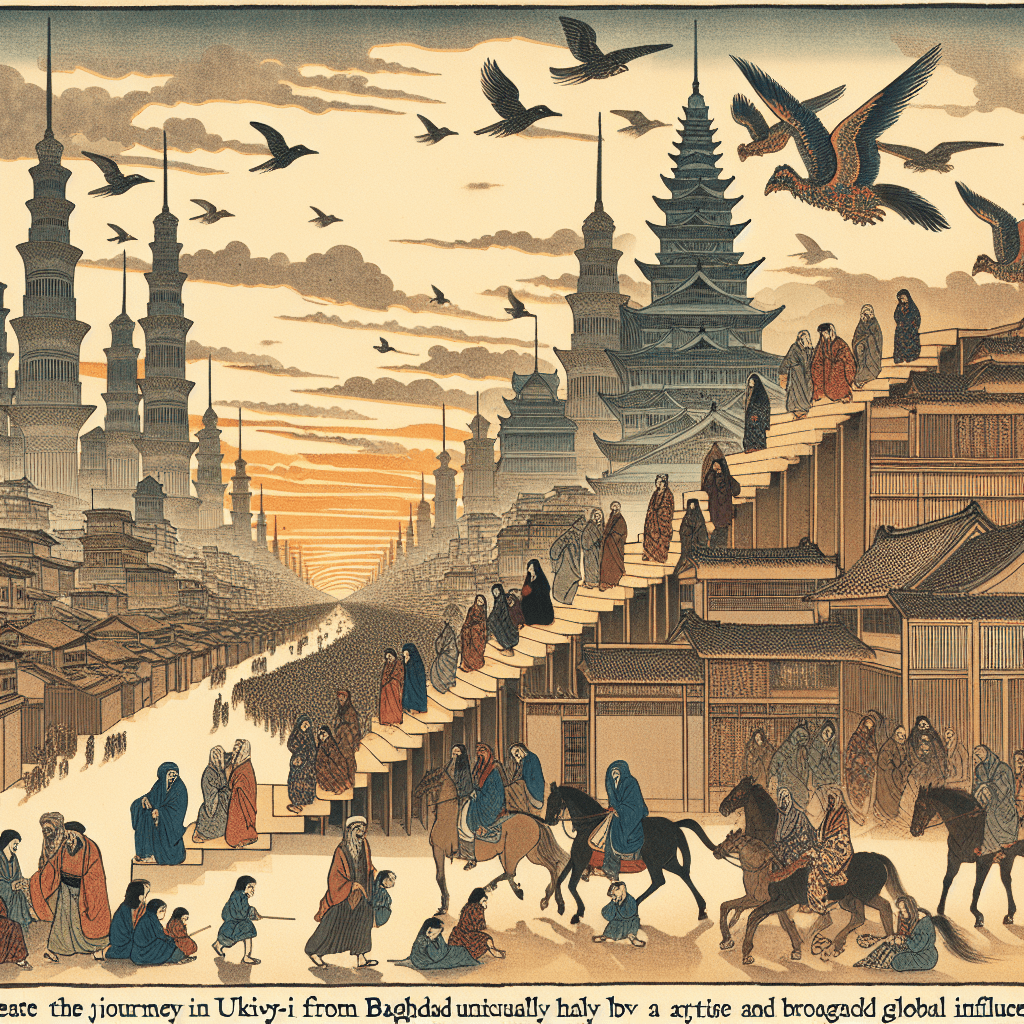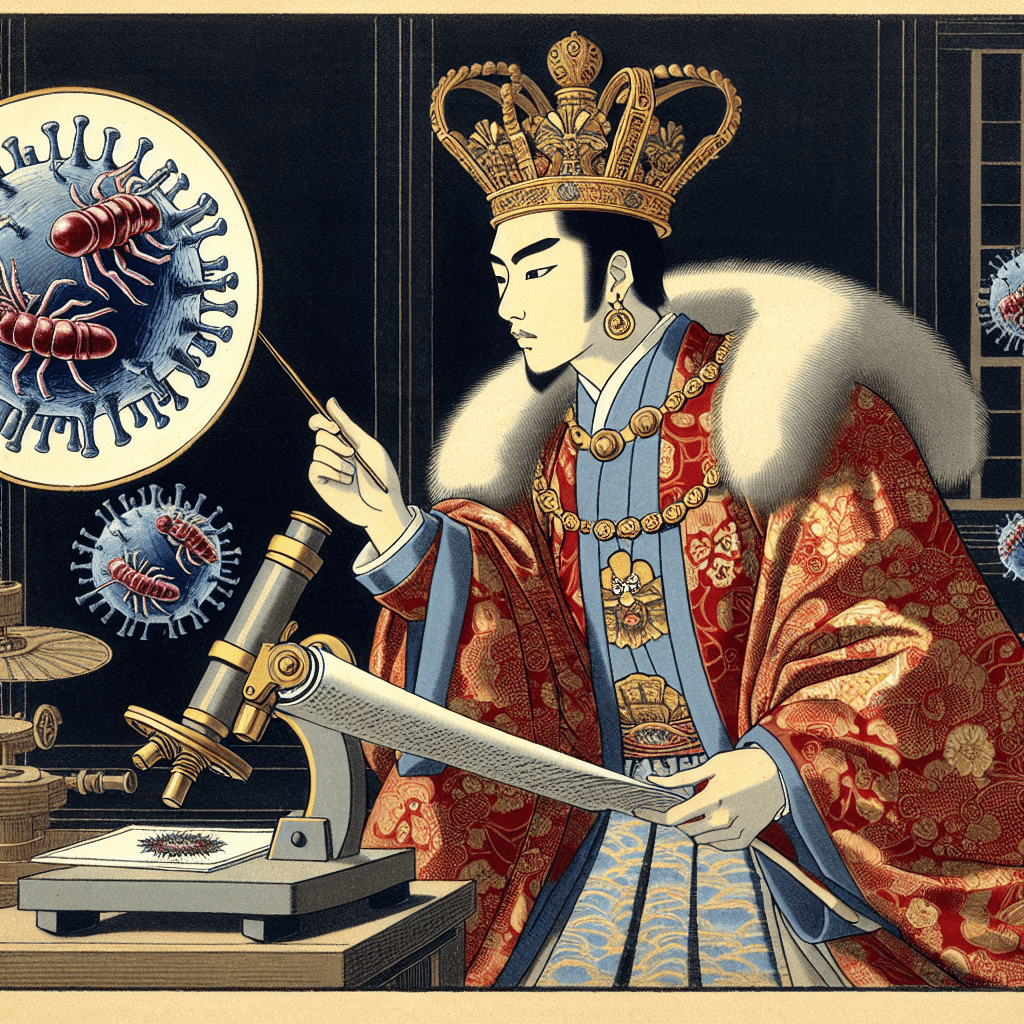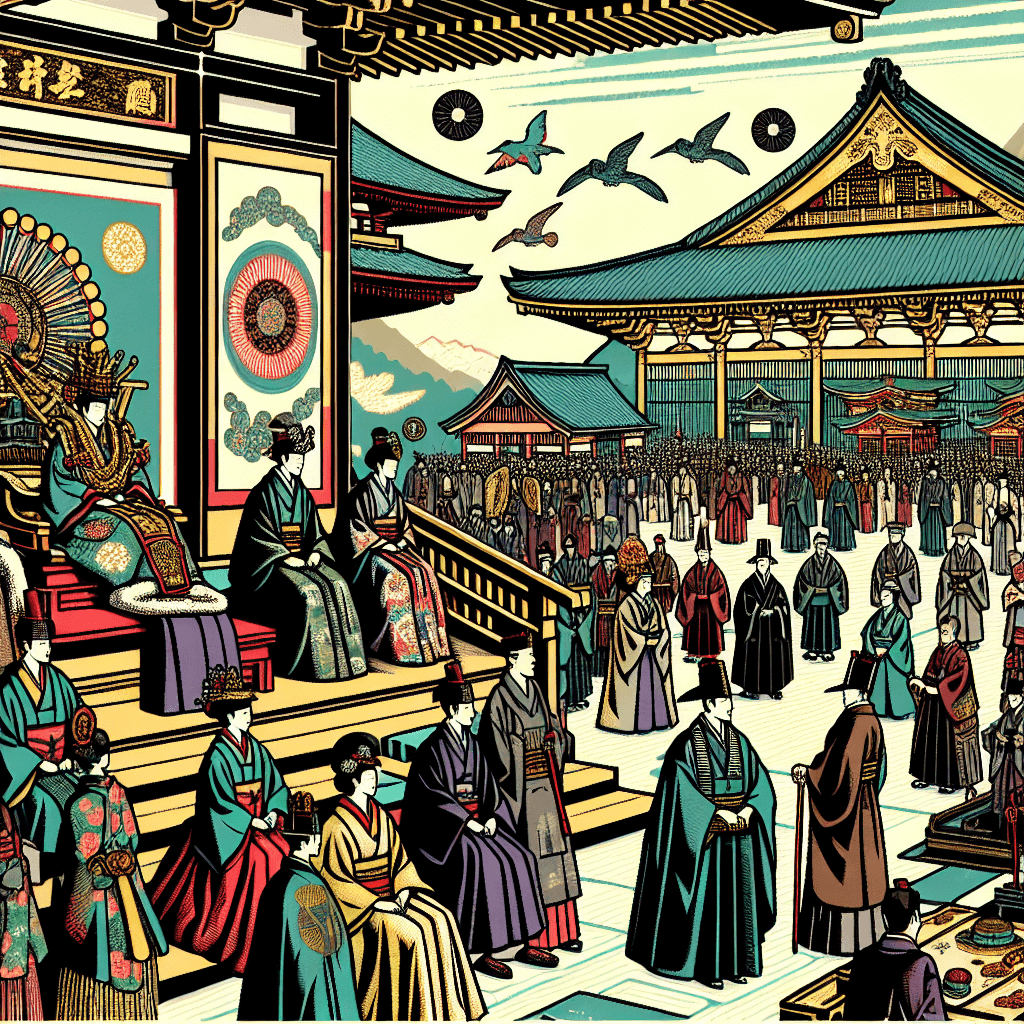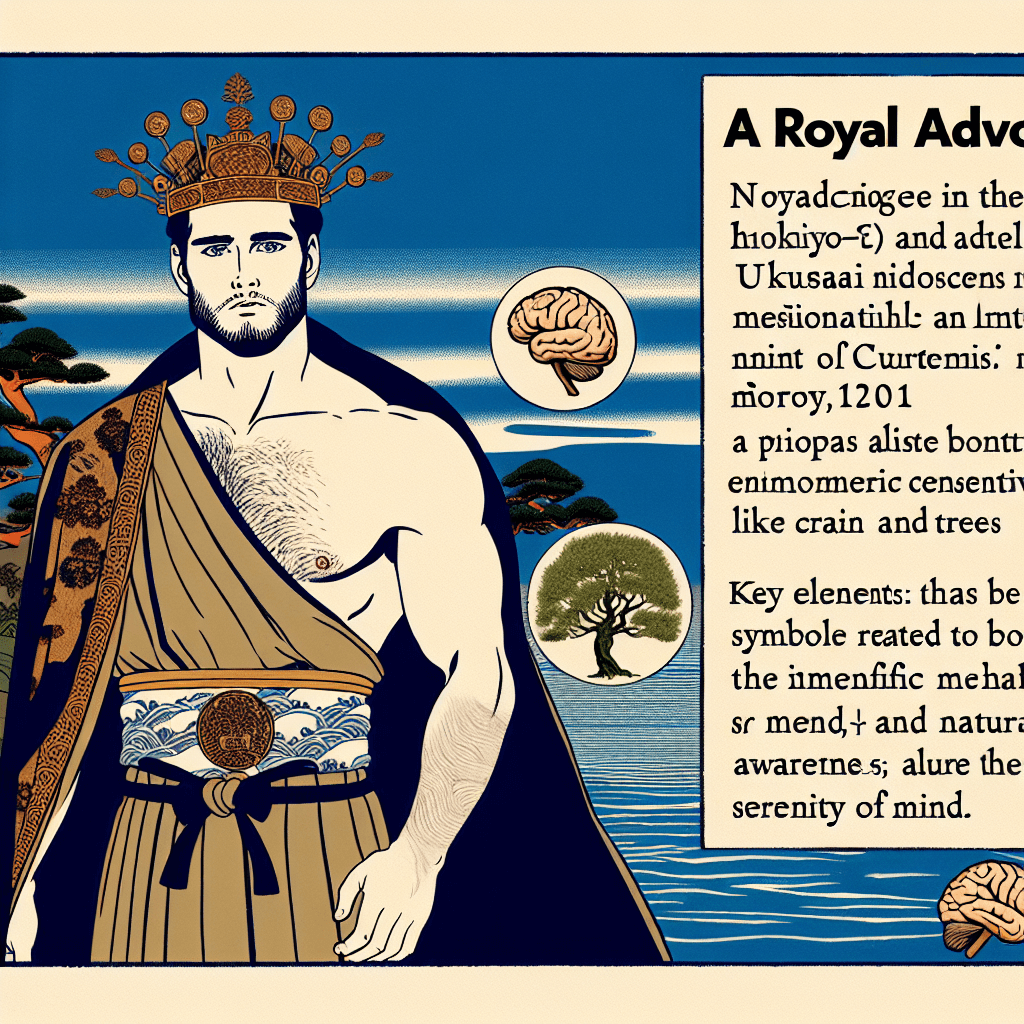Drafting Personalized Blog Posts for Members of the Japanese Monarchy
syndu | Oct. 3, 2024, 8:20 p.m.

Drafting Personalized Blog Posts for Members of the Japanese Monarchy
1. Emperor Naruhito: The Ripple Effect of Toxoplasma gondii on Water and History
Introduction
Emperor Naruhito's dedication to water conservation and historical research provides a unique lens through which to explore the impact of Toxoplasma gondii (T. gondii). This blog post delves into the environmental implications of T. gondii, particularly its effects on water ecosystems, and traces its historical journey through human societies.
Environmental Impact on Water
Toxoplasma gondii oocysts, shed by cats, can contaminate water sources, posing risks to aquatic life and human health. Understanding these impacts aligns with the Emperor's commitment to water conservation and highlights the importance of safeguarding our water resources.
Historical Significance
The historical journey of Toxoplasma gondii reveals its influence on human societies, from ancient Egypt to modern times. By examining these historical accounts, we gain insights into the parasite's role in shaping cultural and societal dynamics, resonating with the Emperor's interest in history.
Conclusion
By exploring the intersection of environmental conservation and historical research, we can better understand the challenges posed by Toxoplasma gondii and the importance of prevention and care.
2. Empress Masako: Bridging Education and Mental Health in the Context of Toxoplasma gondii
Introduction
Empress Masako's advocacy for education and mental health awareness provides a platform to explore the cognitive impacts of Toxoplasma gondii on human behavior. This blog post emphasizes the importance of education and public awareness in preventing T. gondii infection.
Cognitive Impacts on Mental Health
Research suggests that T. gondii infection may be linked to subtle cognitive and behavioral changes, highlighting the need for increased awareness and preventive measures. Understanding these impacts aligns with the Empress's focus on mental health advocacy.
Educational Initiatives
Promoting education and public awareness about Toxoplasma gondii is crucial for preventing infection and mitigating its cognitive impacts. By fostering a culture of learning and awareness, we can empower individuals to make informed decisions about their health.
Conclusion
By bridging education and mental health, we can promote cognitive health and prevent T. gondii infection, aligning with the Empress's advocacy for mental health and education.
3. Crown Prince Akishino: Biodiversity and Agriculture in the Toxoplasma gondii Lifecycle
Introduction
Crown Prince Akishino's interests in biodiversity and agriculture provide a framework to explore the role of cats in the Toxoplasma gondii lifecycle. This blog post examines the impact of T. gondii on biodiversity and agriculture, highlighting strategies for responsible pet ownership.
Role of Cats in Biodiversity
Cats, as definitive hosts for Toxoplasma gondii, play a crucial role in the parasite's lifecycle. Understanding their impact on biodiversity and ecosystems aligns with the Crown Prince's commitment to conservation efforts.
Agricultural Implications
T. gondii can affect livestock and crops, posing challenges for agricultural development. By exploring these implications, we can develop strategies to mitigate the risks and promote sustainable agriculture.
Conclusion
By understanding the interplay between biodiversity, agriculture, and T. gondii, we can foster a harmonious coexistence with our feline companions and promote sustainable practices.
4. Crown Princess Kiko: Health Care and Cultural Preservation in the Context of Toxoplasma gondii
Introduction
Crown Princess Kiko's focus on health care and cultural preservation provides a lens to explore the health implications of Toxoplasma gondii infection. This blog post addresses the health risks associated with T. gondii and highlights cultural perceptions of cats.
Health Implications
T. gondii infection poses health risks, particularly for vulnerable populations such as children. Understanding these risks aligns with the Crown Princess's commitment to health care initiatives.
Cultural Significance
Cats have played a significant role in various cultures throughout history. By exploring these cultural perceptions, we can appreciate the historical significance of cats and their relationship with T. gondii.
Conclusion
By addressing health care and cultural preservation, we can promote awareness and prevention of Toxoplasma gondii infection, aligning with the Crown Princess's focus on health and culture.
5. Princess Mako: Education and Cultural Exchange in Understanding Toxoplasma gondii
Introduction
Princess Mako's interests in education and cultural exchange provide a platform to explore the educational aspects of Toxoplasma gondii. This blog post emphasizes the role of cultural exchange in understanding and preventing T. gondii infection.
Educational Initiatives
Promoting education about T. gondii is crucial for raising awareness and preventing infection. By fostering a culture of learning, we can empower individuals to make informed decisions about their health.
Cultural Exchange
Cultural exchange plays a vital role in understanding the global impact of Toxoplasma gondii. By sharing knowledge and experiences, we can promote awareness and prevention strategies across cultures.
Conclusion
By integrating education and cultural exchange, we can enhance understanding and prevention of Toxoplasma gondii infection, resonating with Princess Mako's interests in education and cultural exchange.
6. Princess Kako: Arts and Social Welfare in the Context of Toxoplasma gondii
Introduction
Princess Kako's focus on arts and social welfare provides a framework to explore the social implications of Toxoplasma gondii infection. This blog post incorporates artistic elements and highlights the importance of community education.
Artistic Elements
Incorporating artistic elements, such as illustrations depicting the Toxoplasma gondii lifecycle, can enhance understanding and engagement. By using art as a medium, we can communicate complex scientific concepts in an accessible way.
Social Implications
T. gondii infection has social implications, particularly for vulnerable populations. By promoting community education, we can raise awareness and prevent infection, aligning with Princess Kako's focus on social welfare.
Conclusion
By integrating arts and social welfare, we can promote awareness and prevention of Toxoplasma gondii infection, resonating with Princess Kako's interests in arts and social welfare.







